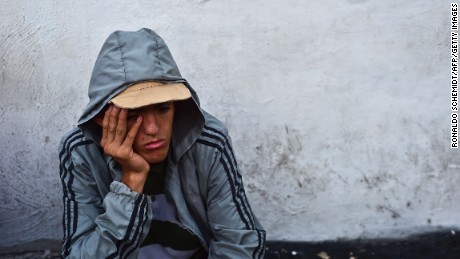What went wrong in Venezuela?
Updated 2048 GMT (0448 HKT) August 2, 2016
(CNN)From Caribbean beaches to snow-capped mountains, the country has it all. It has the largest proven oil reserves in the world. Many in a thriving professional class left the country when Hugo Chavez took power in 1999, but the early years of his rule saw a massive reduction in poverty, more children in school, and greater access to clean drinking water.
That was very much "then." Now, Venezuela is in a food, health and energy crisis.
What happened?
Plummeting oil prices
Chavez's social programs were possible because of oil revenue. When oil was about $100 a barrel, the millions flowing in through the state-owned petroleum company could be spent on social programs and subsidizing food. But when oil prices fell to less than $30 a barrel (even now they are well under $50), that became unsustainable.
No dollars for imports
The falling oil prices also meant less foreign currency being available for Venezuela's government and that hit the ability to import items. There are now critical shortages of goods produced outside Venezuela, including medicine.
Price controls
Chavez ordered that prices of key items be slashed so that everyone could afford them. The official price now for a bag of corn flour used to make the everyday Venezuelan staple of arepas, for instance, is 190 bolivares ($19 at the official exchange rate; only a dime or two at the black market exchange rate). And while that is affordable for consumers, the price of flour and other key items is below the cost of production -- so domestic producers have stopped making it. That made imports more essential, exacerbating the lack of foreign currency.
World's highest inflation rate
Venezuela rarely publishes its own economic data, but the International Monetary Fund reports the country is being crippled by price increases in the real world, away from the government stores where prices are kept artificially low.
Political strife
President Nicol├Īs Maduro was hand-picked by Chavez as his successor, but he has neither the charisma nor the beneficial oil prices to keep the people happy. Last year, the opposition won a majority of seats in parliament and launched a campaign to get rid of Maduro. But the President simply declared that parliament had "lost political validity" and is vowing to stay on.
So what does it feel like?
The impact of the country's problems are all too obvious to most Venezuelans.
- Shortages of food and home staples like milk, flour and toilet paper
- Shortages of medicine
- Rolling blackouts
- Rising unemployment
- Soaring violent crime
- Even malaria, once almost eradicated, is back on the rise.









